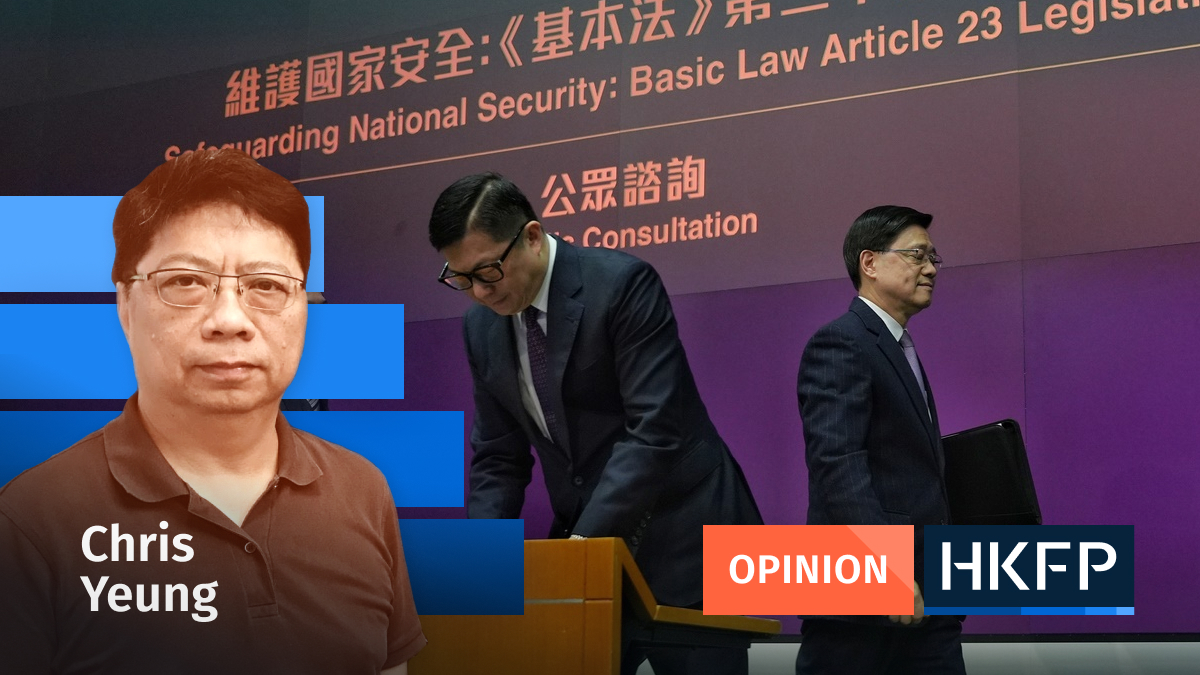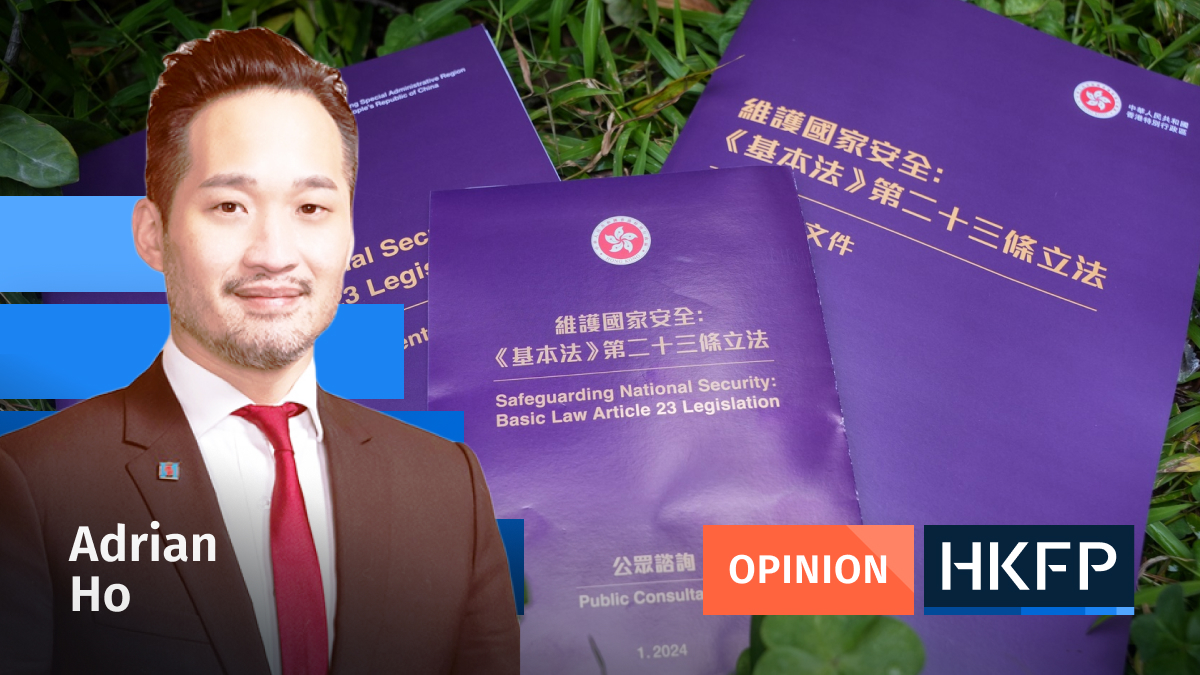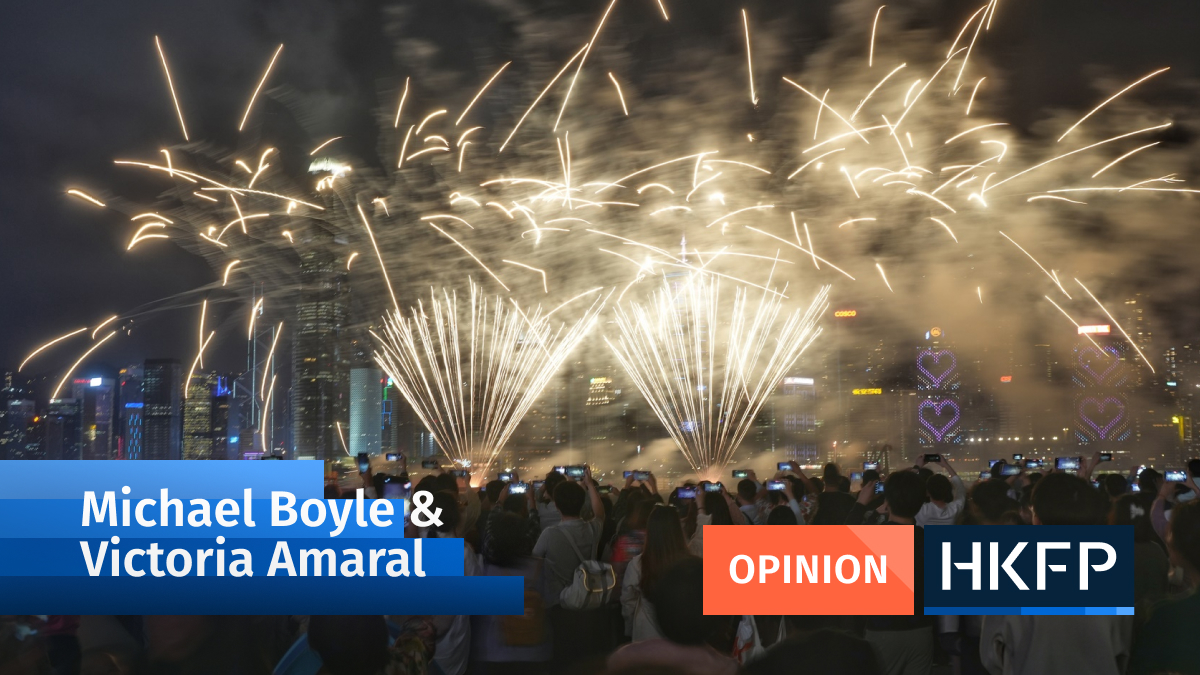Since January 2022, our official “patriots-only” Legislative Council (LegCo) has changed the way it reports minutes of panel meetings, where much of the public’s business is conducted.
As a result, LegCo members are no longer identified by name in the minutes of these meetings. This is a sharp departure from previous practice, and further degrades Hong Kong’s system of public accountability.

The issue came to public attention in mid-January 2023 when various media publicised and condemned the practice. So too did the Hong Kong Journalists Association. We all should be concerned, however. Citizens cannot hold LegCo members to account if we do not know what they said or whether they spoke at all.
In 2021, authorities cut LegCo’s ties with the public. They reduced the number of directly elected seats to 20 out of an expanded 90-seat chamber. All candidates had to be nominated by members of a pro-Beijing Election committee and were screened by national security police and by an eligibility review committee led by then-Chief Secretary John Lee.
The shut-out public shunned the elections. This process was accompanied by official efforts to hollow out civil society, including forcing the closure of media outlets, in a headlong rush for security. These measures have all undermined public accountability.
Now we realise that what specific LegCo members are doing and saying (or not) is more difficult for the public to discover than in the past. These changes also make it more difficult for the media to participate in holding authority to account. Accountability builds trust in government.

The LegCo Secretariat explained the change as an enhancement, fitting for our new-look political system. They said that no-name minutes would facilitate the public, LegCo members and officials to “grasp the flow of meetings, the main points of discussion and their responses, and therefore to streamline the summary and consolidate the main points of the speeches of the participants.”
Now we only know that “members,” “a member” or “some members” spoke and that “the administration” replied. Authorities provide an appendix listing the time in a recorded webcast accompanying the minutes which identifies when members spoke and briefly summarises what they said.
This arrangement in no way makes up for the loss of transparency.
Reviewing the webcast is tedious work, mistakes can easily be made attributing remarks to individuals or even understanding what they said. Ultimately, the new arrangements degrade the public’s capacity to understand the issues involved, and which members identified with which interests spoke or did not, or the logic of their position.

Much has been made of Chief Executive John Lee’s government’s focus on results. This is good, but the process of achieving results also matters. Discussion in LegCo is part of the process. The public is not well served by knowing what anonymous “members” said or did. The webcast time tracker does not replace name-specific minutes.
Such minutes are a core part of the historical record that is key to accountability. With the new reduced opportunity for public participation, transparency in LegCo is even more important.
Apparently, authorities have chosen to underfund the LegCo Secretariat, hobbling its ability to deliver the timely, accurate, and name-specific minutes that the public needs. This is a deliberate decision that degrades our system of accountability, undermining trust.
As well as citizens, other interested parties need to know exactly what transpires in LegCo. These include the members of functional constituencies that voted for their representatives. The Liaison Office and establishment also needs to know how their chosen LegCo members behave. Do they depend on “other” minutes or on formal copies of speeches perhaps not actually delivered? These issues of accountability go to the heart of the matter.

Masking their identity is not in the interests of LegCo members, either. In addition to the clear interests of the 20 directly-elected members, functional constituency members also have an interest in letting their constituents know what they are really doing. Some of the Election Committee members, previously popularly elected, might understand this concern, too.
Some LegCo members may prefer not to be identified as active participants in LegCo panels. Some may prefer that the public not know exactly what they say. If there are such members, we need to know why they feel this way. Citizens need to know what goes on in LegCo, and name-specific minutes play a part in the discovery and accountability process.
Trust in government is important. To formulate and implement policy that meets public expectations, citizens must trust the government. Moves to shield members of LegCo from accessible public scrutiny will not win public trust, only public derision.
Support HKFP | Policies & Ethics | Error/typo? | Contact Us | Newsletter | Transparency & Annual Report | Apps
| HKFP is an impartial platform & does not necessarily share the views of opinion writers or advertisers. HKFP presents a diversity of views & regularly invites figures across the political spectrum to write for us. Press freedom is guaranteed under the Basic Law, security law, Bill of Rights and Chinese constitution. Opinion pieces aim to point out errors or defects in the government, law or policies, or aim to suggest ideas or alterations via legal means without an intention of hatred, discontent or hostility against the authorities or other communities. |
Help safeguard press freedom & keep HKFP free for all readers by supporting our team

More HKFP OPINION:
HKFP has an impartial stance, transparent funding, and balanced coverage guided by an Ethics Code and Corrections Policy.
Support press freedom & help us surpass 1,000 monthly Patrons: 100% independent, governed by an ethics code & not-for-profit.










